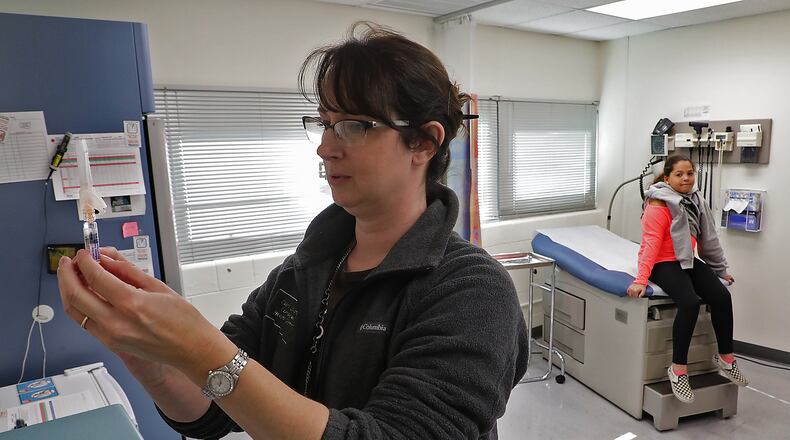As of April 10, Clark County has had 203 flu-related hospitalizations, according to the Clark County Combined Health District.
Overall, “regional influenza activity is decreasing,” according to CCCHD data. Nationally, flu activity is also decreasing.
MORE ON THE FLU: Over 150 cases of flu-related hospitalization in Clark County
The flu is a common viral infection that can easily spread from person to person. Typically, a healthy person can fight off the flu with rest, but it can be dangerous for young children and the elderly.
Symptoms of influenza can include fever, cough, sore throat, body aches, headache, chills and fatigue. And while most people fully recover after getting sick, some experience severe illness and the flu can sometimes be fatal.
Champaign County has 42 flu-related hospitalizations so far this season, according to data from the CCCHD.
Flu season in Ohio begins in Ohio and lasts through May.
MORE FROM RILEY NEWTON: Clark County Sheriff’s Office to assist in enforcing stay-at-home order
The health district still encourages residents to get a flu shot to prevent the spread of influenza.
“It’s never too late for a flu shot,” Smales said. “The single best way to prevent the flu is to get vaccinated each year. But good health habits like covering your cough and washing your hands often can help stop the spread of germs and prevent respiratory illnesses.”
Some of those healthy habits include avoiding close contact with people who are sick, washing your hands often or using hand sanitizer if soap and water are not available, and avoiding touching your eyes, nose or mouth — as germs are usually spread when a person touches something contaminated and then touches their eyes, nose or mouth.
Practicing other good health habits like disinfecting frequently touched surfaces, getting plenty of sleep, being physically active, managing stress, drinking plenty of fluids and eating nutritious foods can help prevent the illness as well, the district said.
About the Author
